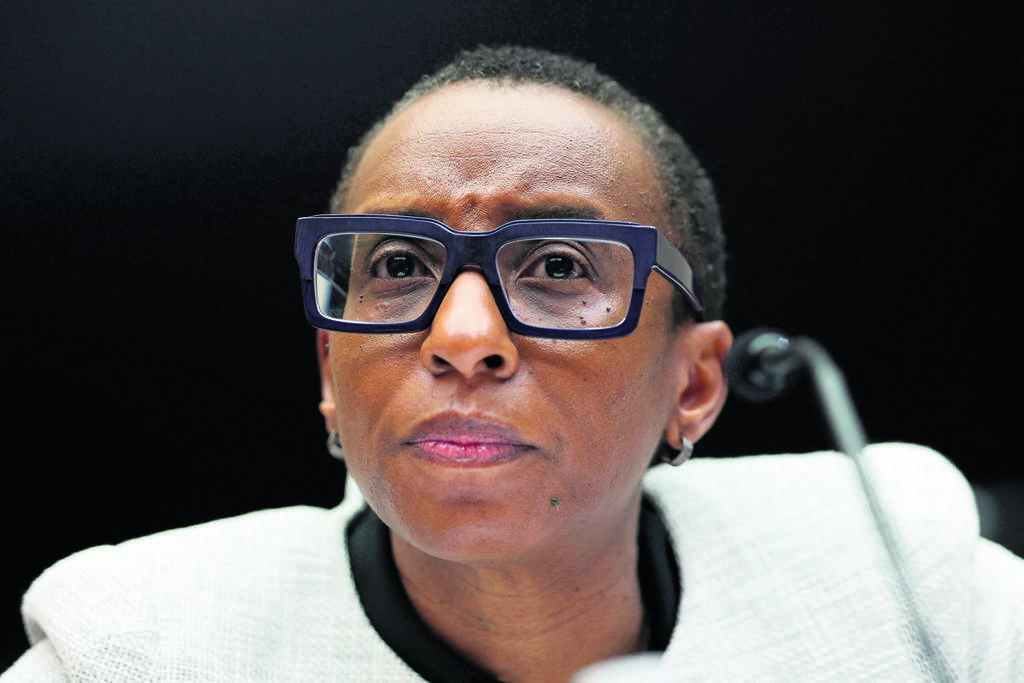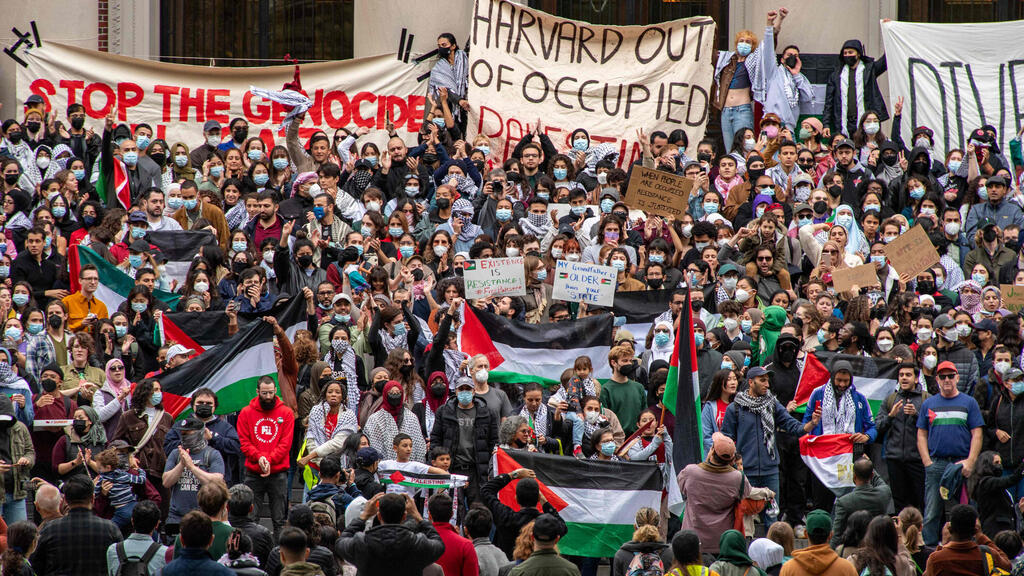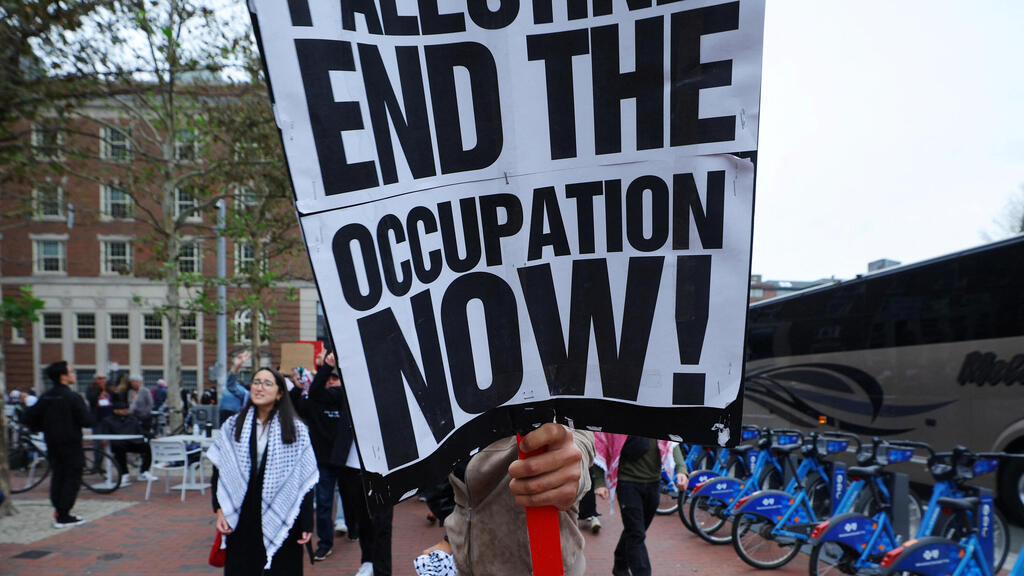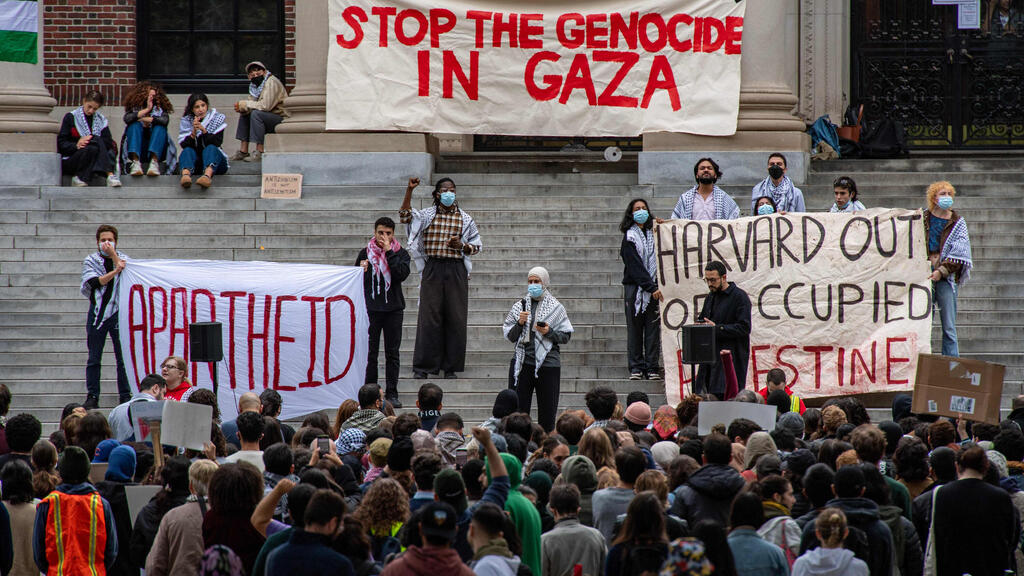Getting your Trinity Audio player ready...
Chapter I: Not a single bullet fired, but Israel’s to blame
On the afternoon of October 7th, homes in Gaza-border communities are ablaze, babies were being murdered and hoards of terrorists were massacring young people who just came to dance. The IDF had not yet fired a single bullet at Gaza residents. The country was still in a state of shock as the numbers of dead and kidnapped was just beginning to become clear. Then, an open letter was published by 33 student organizations at Harvard University, claiming that “the Israeli regime (is) entirely responsible for all unfolding violence… today’s events did not occur in a vacuum. “
More stories:
This letter was the opening shot of the hardest period in the history of the world’s most prestigious academic institution. Following the mass slaughter in Israel, 387 years of research and academic prestige were overshadowed by the stormiest time in the history of Harvard University.
Quick to come were sharp reactions to this scandalous letter blaming Israel for the massacre. Claudine Gay, Harvard University president stood in the eye of the storm. She had taken office only shortly before the massacre and could never have imagined being caught up in a crisis so deep. It took her three days to formulate a rather feeble response that, rather than putting the episode to rest, only added fuel to the fire intensifying emotions on both sides.
Barak Sella, a student of Public Administration at the Harvard Kennedy School, told “America, Baby!” in a podcast interview “After reaching out to our lecturers about the horrific letter, we were offered the services of social workers. I said that wasn’t what I needed. What I’m demanding is ethical justice. You don’t have to be on Israel’s side, but there must be an unequivocal condemnation of terrorism. After that tepid response, I just felt ashamed to be part of Harvard. I wanted to pack my things and go. I was ready to pack my bags and get out of here. The response was a kind of condemnation of violence, so generic it didn’t even define Hamas as a terrorist organization. We were astounded. With this shabby letter, Harvard sanctioned the ensuing demonstrations and rise in antisemitism. I don’t think Harvard understood the incident . They’re supposed to be the smartest people in the world and they simply didn’t understand the magnitude of the event.
Chapter II: You signed the letter, you bare the consequences
On the days following the letter’s publication, a backlash came from Israeli and Jewish benefactors. Captains of industry and CEOs of foundations donating millions to Harvard demanded the names of the students who had signed the letter be revealed. Their main contention was wanting to ensure that they wouldn’t “inadvertently hire“ any of them, and so it was important to know exactly who they were. Revealing their names shocked many signatories. Some pulled their signatures. Others claimed they didn’t know what they were signing. Despite attempts to conceal the names, several dozen names were exposed for all to see, emblazed on a digital billboard on a truck driving around campus. Instead of pacifying the situation, the university’s response was yet more divisive: Harvard set up a special task force to support the students whose names were exposed so as to help them through this difficult time.
In the meantime, the economic pressure started mounting: As the pro-Palestinian students continued demonstrating on campus, inciting an atmosphere of hostility toward Jews and Israelis, a list of donors publicly announced that the money would stop. Kobby Barda, senior researcher of Religious Studies at Haifa University and an expert on American politics and strategy, says “This is the first time we’ve seen Jews and Israelis seriously organizing themselves to shoot their arrows at the same time. The Ofer family came first, announcing the cessation their donations to Harvard. A public appeal was also made by billionaire hedge fund CEO, Bill Ackman, who said that ‘One should not be able to hide behind a corporate shield when issuing statements supporting the actions of terrorists.’ The Wexner Foundation announced it would be terminating its 30-year relationship with Harvard’s school of public administration, constituting both a financial setback and a considerable blow to the school’s reputation. It kept snowballing as more companies and businesspeople levelled criticism at Harvard, some withdrawing funding or threatening to sever ties with the university.”
Law firms wrote an extremely fierce letter to the deans of law departments at the big universities warning them, in naturally cautious legal language, that if they did not voice an unequivocal stance against antisemitism, the law firms would consider very carefully whether or not to employ their graduates.
Chapter III: Just a minute. How did we get here?
The storm that has beset Harvard comes as no surprise to anyone who has visited university campuses in recent years. Progressive departments gained a strong hold over students and some lecturers, instilling in them the “White Oppressor” narrative with all its trimmings. “It’s an alliance of minorities whereby everyone huddles into the progressive tent," Barda says. "They’re united by their opposition to the ‘Oppressive White Man.’ They feel guilty about ‘Whites’ conquering Native American land, colonial crimes and the oppression of the black man and minorities. This filter means that one must oppose the only country in the world they believe to be colonialist – Israel. In simple terms: “White is guilt”. And in this conflict, Israel is naturally The Whites, and the Palestinians are The Oppressed.
Barda adds that “a recent survey shows that 51% of Generation Z supports Hamas. Not the Palestinians, Hamas. They’re very much influenced by the atmosphere on campus, but no less by social media, primarily TikTok, that for many is their gateway to news. This is an aggressive political tool used to fight battles for popular opinion. On TikTok, there’s a huge amount of anti-West ideas, with the Israel story at the forefront. The environment is toxic and the main arena is academia, particularly the most prestigious universities.”
Another factor is Qatari and Arab money in general. A vast amount of foreign money makes its way into academia, influencing the views and education of the future generation. A prominent example is that of Northwestern University. It maintains an extensive relationship with the Qatari government and has even set up a branch of the university in Qatar itself, specializing in journalism and communications – disciplines directly connected to formulating public opinion.
In the United States, they’re very concerned about these foreign influences. The “New York Post” published an article challenging Republican members of congress to investigate and reveal the sources of foreign funding to the universities. This followed a study finding a direct correlation between the sources of foreign funding and antisemitism levels on campuses.
Chapter IV: Is it okay to shout “From the river to the sea, Palestine will be free”?
President Claudine Gay watched events and understood that she must respond and stop the bleeding. After a month of thinking long and hard, she issued a statement condemning the popular demonstration slogan “From the river to the sea, Palestine will be free.” She said that this was understood by many as a call to expel Jews from Israel, and was perceived as threatening by Jewish communities.
Why is she suddenly doing this now?
Barda: “She’s losing Jewish donor money; she’s losing the legitimacy of the prestigious institution; she’s losing ‘legacy admissions’ whereby Harvard graduates enroll their children to their alma mater, as influential Harvard alumni are now declaring they won’t be sending their children to Harvard.”
“For three weeks, she did nothing at various key moments. She voiced rather feeble condemnations and tried to remain ‘inclusive’, accepting all sides and all opinions. Now, we’re witnessing a certain change of direction, but I don’t know whether sanctions will actually be taken against students chanting these slogans or what will really happen on campus.”
Chapter V: Where does it go from here?
The storm is far from over. Bill Ackman, along with further top dogs, is keeping up the pressure on Harvard. Ackman continues to criticize Harvard’s management in a series of online postings. Last week, he panned Harvard’s decision to allow demonstrations on campus that called for Intifada. He claims that “Harvard permits on campus rallies calling for Intifada, or in other words, a call to action to kill Israeli civilians and Jews with suicide bombings, knife attacks and shootings. Would the protest be permitted if they called for lynchings of black people?”
Barak Sella explains “I talk to people here on campus, and a lot of them claim that the Zionist project was born in sin. They claim it’s a colonialist project and it’s the easiest thing in the world to accuse it of all things bad. There’s deep rooted antisemitism here. It’s an acute disease that can be managed but not necessarily cured. I’m sad to say that they take advantage of American young people. Some are very well meaning and really do want world peace but, along the way, support things that are immoral. “
So, what’s the solution?
Sella says Israel and World Jewry need to stop thinking like a small, separate country and a small, weak nation. “We need to get into seriously strategic gear. We must demand profound changes so as to change academia and establish our own institutions and raise money from the right places, as well as strengthen Israeli academia. The whole world’s not against us. Most Americans support us and we need to reach out for real partnerships and build alternative programs. “
At the summation of the podcast, he says that “this crisis is bigger than us. The American public’s trust in these intuitions is at an all time low. If the United States wants to sustain her cultural and academic ‘soft power’, they need to come to their senses and understand that this largely involves keeping their institutions relevant. In some places, it’s lost and we’re going to have to say that these are not places for Jews or Israelis, but we should go to places where they do want to do something different. The United States is facing a profound internal crisis, and it can’t pass over academia. You need to make the effort and fight for this space. We must fight for the sound 85% rather than focus on the extremist 15%.”
Aftermath
Last week, Gay along with the presidents of MIT and Penn testified before Congress and failed to adequately respond to questions on whether calling for the genocide of Jews was acceptable on their campuses or violated free speech in addition to posing a danger to Jewish students.
5 View gallery


University of Pennsylvania, Liz Mgill, Harvard University President Claudine Gay, MIT President Sally Kornbluth
(Photo: Ken Cedeno / Reuters, Will Oliver /EPA Mark Schiefelbein / AP)
In the wake of that testimony, UPenn fired President Liz Magill resigned. Gay issued a statement clarifying her testimony. ""There are some who have confused a right to free expression with the idea that Harvard will condone calls for violence against Jewish students. Calls for violence or genocide against the Jewish community, or any religious or ethnic group are vile, they have no place at Harvard. Those who threaten our Jewish students will be held to account," she said in a post on X.






